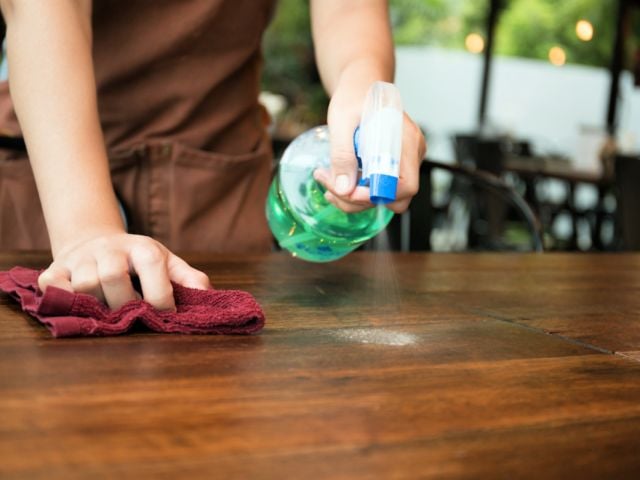(WASHINGTON, May 13) — Commissioner Thomas Moore of the federal government's Consumer Product Safety Commission (CPSC) shares Environmental Working Group's (EWG) concern that children playing on decks, play sets and other structures made of arsenic-treated lumber may develop cancer later in life from arsenic that rubs off the wood and sticks to children's skin.
Moore, the sole Democrat among three commissioners, issued a statement on May 11 that criticizes his own agency for not offering clear and strong enough advice to parents. "[B]oth the report and the accompanying press materials fail to identify what the risk is, who is at risk and how people are exposed to that risk," he writes in a statement available at http://www.cpsc.gov/cpscpub/prerel/prhtml05/05170m.html.
Treated wood, infused with arsenic to kill insects and prevent rot, has been Americans' staple outdoor lumber since the 1970s. An estimated 70 million homes across the country have outdoor wooden play sets, decks, and other structures that leach arsenic, which sticks to children's skin and clothing at every touch. Moore advises parents to seal the wood regularly and wash their children's hands after they play on the wood.
CPSC and the Environmental Protection Agency (EPA) are close to completing studies of how much arsenic comes off of arsenic-treated wood, and which sealants best protect children from arsenic exposure. Their new interim report recommends that consumers use oil- or water-based penetrating sealants or stains to coat the wood and minimize arsenic residues. EWG and CPSC agree that children are at special risk for developing lung or bladder cancer later in life through touching, playing and eating on arsenic-treated wood structures. In a cancer risk methodology adopted by the EPA, EWG estimated that 1 in 500 children will develop cancer later in life directly from his or her time spent on pressure-treated wood structures.
Although the EPA banned arsenic-treated wood for play sets and decks in 2003, much remains in backyards and public playgrounds.
"Parents should wash their children's hands when they are near arsenic-treated wood structures, and never let their children eat on them," said Jane Houlihan, vice president for research at EWG. "Parents should seal their decks, picnic tables and other arsenic-treated wood structures at least once a year to keep cancer-causing arsenic from leaching into children's skin."
EWG offers 10 tips for parents concerned about the cancer risks of arsenic-treated wood, available at https://www.ewg.org/issues/arsenic/10tips.php.
EWG sells at no profit a test kit for parents who want to find out how much arsenic is leaching out of their deck or the soil beneath it, available at https://www.ewg.org/reports/poisonwoodrivals/orderform.php.
###
EWG is a not-for-profit research organization based in Washington, D.C., that uses the power of information to protect human health and the environment. Their research on the cancer risks of arsenic-treated wood is available at https://www.ewg.org/issues/siteindex/issues.php?issueid=5001.



